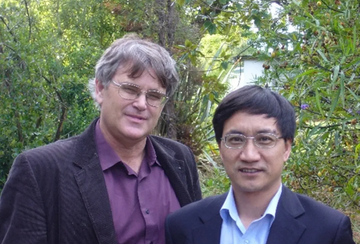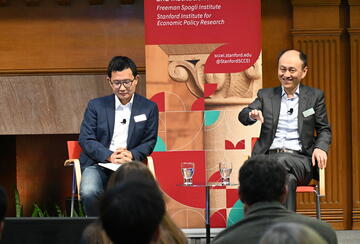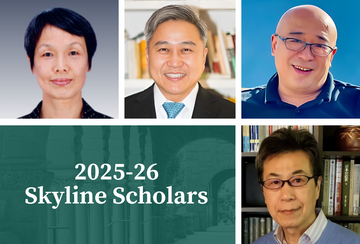News

Authors Hongbin Li and Ruixue Jia sit down with podcast host Peter Lorentzen to discuss their new book The Highest Exam on the New Books Network Podcast.
On November 20, 2025 The Economist published their list of the best books of 2025 and included Hongbin Li's new book, "The Highest Exam: How the Gaokao Shapes China" in the line-up.
Jikun Huang reflects on his 30 years with the China Center for Agricultural at Peking University and how the founding of the center was deeply influenced by his chance encounter with Scott Rozelle in the Philippines in 1988.
Hongbin Li and Ruixue Jia joined Yiqing Xu for a fireside chat on their newly published book, "The Highest Exam: How the Gaokao Shapes China." Watch the recording and see event highlights.
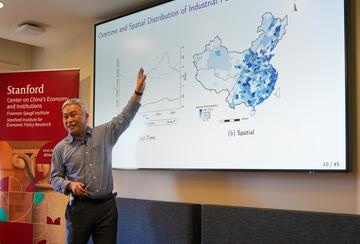
At a SCCEI Seminar economist Hanming Fang presented a sweeping new analysis of how China’s industrial policies have evolved over the past 20 years. Using LLMs, the researchers compiled, codified, and analyzed nearly 3 million documents to build one of the most detailed databases of industrial policymaking in China to date.
Authors Hongbin Li and Ruixue Jia break down their new book, "The Highest Exam: How the Gaokao Shapes China", in an interview with Harvard University Press.
The Stanford Center on China’s Economy and Institutions (SCCEI) is pleased to announce its 2025–26 cohort of Skyline Scholars: Professors Yuyu Chen, Hanming Fang, Ke Wang, and Jing Zhang*.
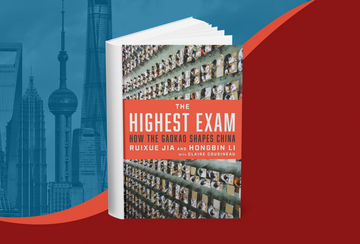
"The Highest Exam: How the Gaokao Shapes China", written by Ruixue Jia, Hongbin Li, and Claire Cousineau, combines rigorous research with compelling personal narratives to reveal how the gaokao has become much more than a test: it is a tool to shape China’s society and economy.
Co-authors Hongbin Li and Ruixue Jia write for the WSJ, "The Test That Rules Chinese Society: The gaokao is China’s college entrance exam, but it shapes the country and its people far beyond the classroom."
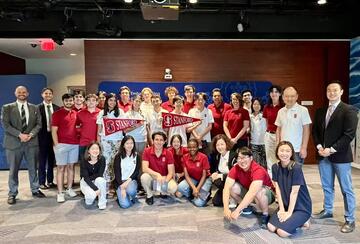
Led by Stanford faculty members, 20 Stanford students traveled across China engaging in academic exchanges, site visits to leading companies and institutions, and rich cultural experiences to gain a deeper understanding of the country’s economy, culture, and international relations.
We sat down with Dr. Yanyan Liu to hear about her journey to becoming a development economist, her research insights, and her advice for the next generation of scholars.
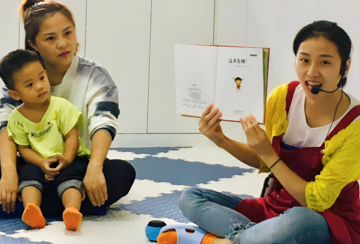
REAP helped establish a parenting center at the Zhengzhou Foxconn Facility serving migrant factory employees and their families. The center implements a research-based curriculum for early childhood development to better meet local needs. The new center has recently received positive media attention across several outlets in China.
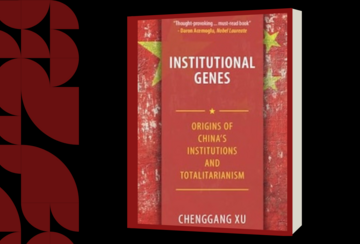
SCCEI Senior Research Scholar Chenggang Xu’s latest book, "Institutional Genes: Origins of China's Institutions and Totalitarianism", explores the origins and evolution of China's institutions and communist totalitarianism.

SCCEI's newest research program addresses the pressing sustainability challenges facing China and examines their broader global implications. Grounded in rigorous empirical analysis and economic modeling, researchers aim to inform the development of effective evidence-based policy solutions as well as uncover valuable lessons for other countries navigating similar economic and energy transitions.
Professor Li's research examines pressing sustainability issues in China and their global implications in order to inform evidence-based policymaking.
We are saddened to share the passing of our dear friend and colleague, Lori McVay, who died on March 29, 2025, at the age of 65.
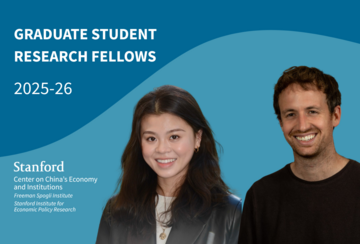
SCCEI awarded Alicia Chen and Matthew DeButts with competitive research fellowships for the 2025-26 academic year to pursue research on China.

Stanford Daily reporter Kayla Chan spotlights Scott Rozelle, REAP Program Director, and the research he has conducted over his 40 years studying agriculture and development in China.

The second annual SCCEI China Conference, held at Stanford University on May 14, brought together leading scholars and policy experts. Panelists offered a candid, multifaceted view of China's global economic position, exploring its technological prowess, industrial diplomacy, and the increasingly complex global responses to its expanding influence.

In a keynote address during the 2025 SCCEI China Conference, U.S.-China Business Council President Sean Stein cautioned that strategic miscalculations and trade tensions have left the U.S. economy with lasting setbacks—and few clear gains.

At the 2025 SCCEI China Conference, Elizabeth Economy, Hargrove Senior Fellow at the Hoover Institution, outlined China’s ambitious bid to reshape the global order—and urged the U.S. to respond with vision, not just rivalry, during a Fireside Chat with Professor Hongbin Li, Senior Fellow and SCCEI Faculty Co-Director.

"Advancing Development with 'Children First' Strategy", the second International Symposium on Early Childhood Development, was held in Hangzhou, China on March 27-29, 2025. The symposium gathered over 100 experts from China and abroad to discuss cutting-edge developments, research topics, and practical approaches in early childhood development.

Professor Maggiori joined SCCEI and Stanford Libraries to discuss how the U.S. and China apply economic pressure to achieve their political and economic goals, and the economic costs and benefits that this competition is imposing on the world.
We spoke with Research Scholar Lingsheng Meng to learn more about his journey from studying economics in Beijing to conducting cutting-edge research on some of China’s most pressing policy issues.

Scott Rozelle and Dorien Emmer's research is featured in the Financial Times article, "China is suffering its own 'China Shock'"


